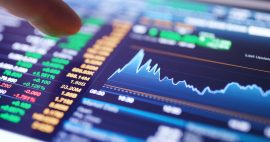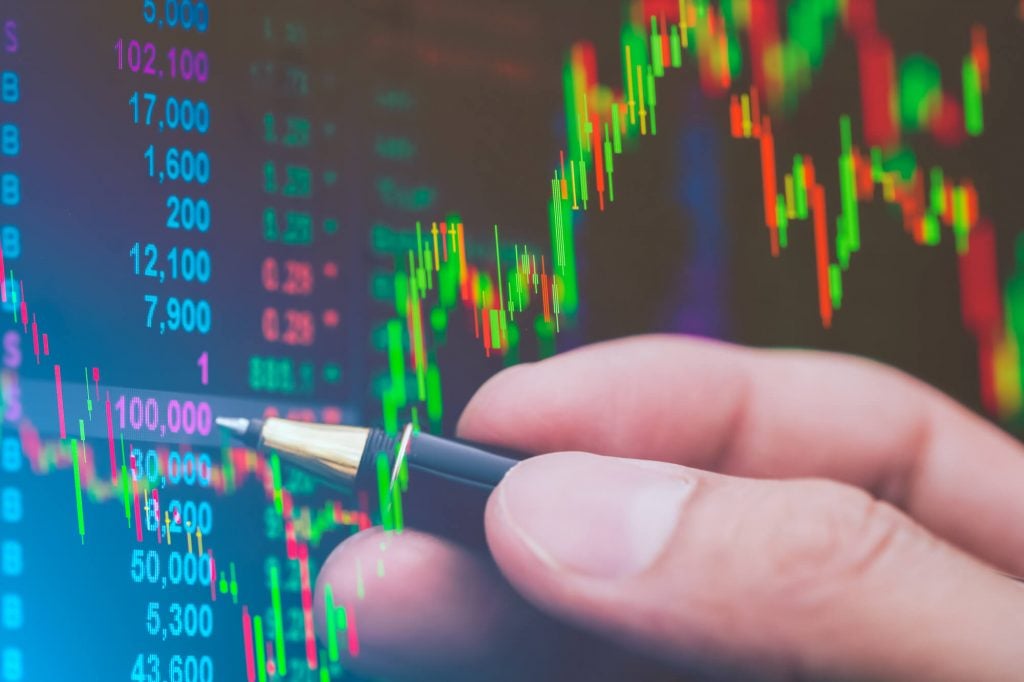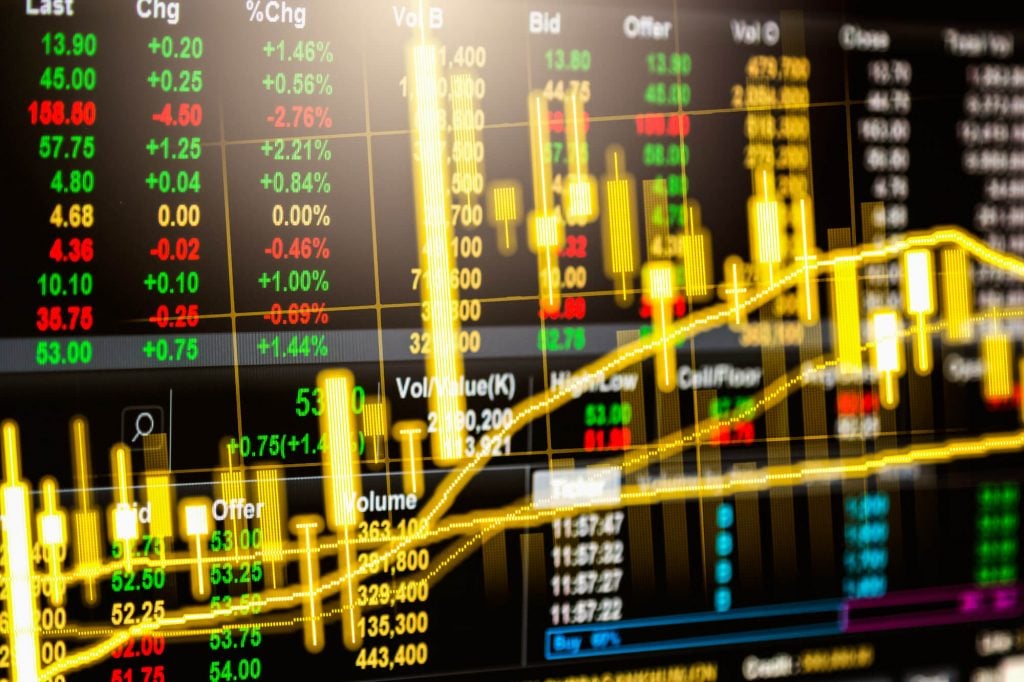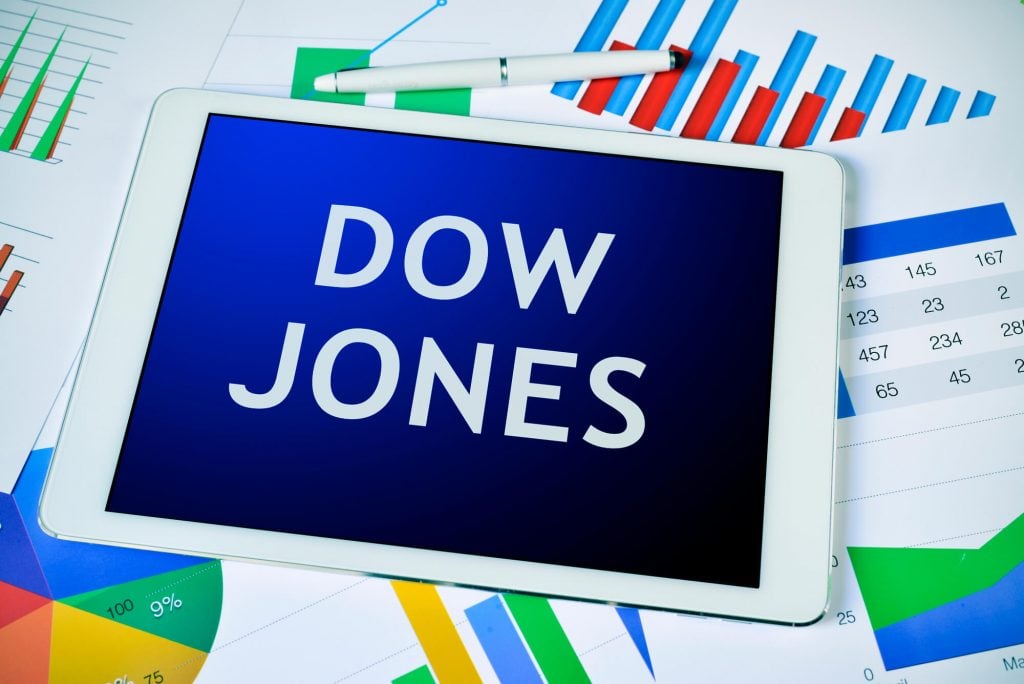
In a sense, predictions are sort of useless. There’s no way to know for sure what’s going to happen in the future. Some trends are foreseeable and getting a jump on them is easy. Other events aren’t and can be nearly impossible to plan for.
Dow Jones predictions are the same way. So many factors affect the stock market that making a bulletproof Dow forecast can be a fool’s errand. This was especially true in 2020 when the massive uncertainty from COVID pandemic ushered in.
The March crash of the Dow Jones Index was expected. The relative quickness of the recovery, however, wasn’t so predictable. Weirdest of all, despite the general economic slowdown that the pandemic produced, the stock market ended 2020 being up more than 16%.
So far, 2021 has largely followed suit. Nobody could have predicted the GameStop gains in January. This was mainly brought on by retail investors with a grudge against hedge funds. Although GameStop isn’t one of the 30 companies that the Dow Jones index tracks (and it probably never will be), its upsurge showed the volatility of the stock market. If GameStop could do it, literally any other company could, too.
So Dow forecasts are inherently risky. The crystal ball is always going to be a bit cloudy to some extent. Nevertheless, investors are always going to try and see into it. That’s not a bad thing. It’s a smart practice.
With all that said, and all disclaimers intact, we’ll offer some Dow Jones predictions that describe what we believe may happen over the rest of 2021.

What is the Dow Jones Index?
The Dow Jones Index is the most well-known barometer of the stock market. It’s a listing of 30 blue-chip companies that measures the economic strength of the companies that are tracked. We’re talking the biggest of the big: Apple, Boeing, Walmart, Microsoft, Chevron, McDonald’s, Nike, Coca-Cola, JPMorgan Chase — mostly household names.
Because the companies on the Dow Jones are so huge, their overall performance on the stock market is considered to be a good indicator of how well the global economy is doing. Other indexes, like Nasdaq and the S&P 500, do so as well. But the Dow is still considered to be the most authoritative.
However, the Dow Jones doesn’t always reflect everything that’s going on in the economy. Rising stock prices might beef up the Dow Jones average. But these prices don’t necessarily have anything to do with unemployment figures and they can’t reflect innovations happening at small-cap tech companies.
Still, the Dow is the most-watched economic indicator in the world. Most of us are impacted by its status. With that in mind, here are a few Dow Jones predictions that may play out shortly.

Economic Recovery After COVID
The COVID-19 pandemic is the kind of crisis we haven’t seen in generations…if ever.
Many parts of the world are still under lockdown or social distancing protocols. Despite the arrival of a few vaccines, experts still warn about the chance of surges from the virus. Few people agree exactly when things will get back to normal. Some don’t expect that they ever will.
But the vaccines are stirring optimism. Not just in the fortunes of the companies producing the vaccine, but also in public hopes that the pandemic may finally get under control.
Several U.S. states are reopening their economies (some more quickly than others). After an incredibly tough year on the unemployment front, February job reports have been encouraging. New stimulus checks have spurred additional consumer activity, as well. Retailers are enjoying new sales highs as customers emerge from winter hibernation.
The Dow Jones index has already reflected some of the vaccine-related optimism. It reached new heights in early March. This happened after the Federal Drug Administration (FDA) approved the use of a Johnson & Johnson vaccine. Johnson & Johnson has been listed on the Dow 30 since 1997.
Similar gains are projected for the travel industry. Experts predict that airlines, online booking sites, and car rental agencies are among the companies that are most likely to rebound this summer.
Disney, another Dow Jones listing, has already had gains from the launch of its Disney+ streaming service and the millions of pandemic shut-ins who have watched it. It’s expected to enjoy another boom when customers return to Disney theme parks this summer.
With that being said, analysts have a few concerns. Although the vaccine is in production, the rollout has been gradual so far. Worries about side effects may also cause some people to reject the vaccine. Some people fear that future strains of the virus may be more resistant to the vaccine, as well. But for now, there’s reason for cautious optimism, even in the stock market.
Tech Stocks May Level Out
One sector that benefited from the pandemic — awkward as it feels to say that — was the IT industry.
Working from home was already a developing trend before 2020 started. But the COVID pandemic forced it to become the industry standard, at least for now.
Difficult as the transition was, it helped to elevate certain tech stocks to new heights. Video conferencing apps like Zoom and online security companies like CrowdStrike recognized gains. So did companies that provide entertainment streaming, like Amazon and Netflix.
None of the above companies are in the Dow index (not even Amazon, which is strange). Tech giants Apple and Microsoft are. Both experienced modest gains, as did the smaller techies that drove the work-from-home trend.
But with the reopening of the global “street” economy, those tech stocks may experience a little drop-off in the coming months. It likely won’t be too substantial — there is no reason to fear a massive blow-out. However, the tech bubble is likely to ebb a bit.
That’s more likely to affect the tech-heavy Nasdaq Composite than the Dow Jones Index. In fact, Nasdaq took a hit in March 2021, as vaccines rolled out and treasury bond yields went up. But it could affect the fortunes of blue-chip tech stocks like Apple, Microsoft, and Intel.
On the other hand, stocks that suffered the most during the pandemic — brick-and-mortar retailers, along with leisure and travel companies — may experience a huge bounce-back. You can bet that once restrictions are lifted, people are going to seek fast cures for their year-long stir-craziness. Main Street will reap the rewards.
Small-Cap Companies Might Take Charge
Wells Fargo has famously predicted that 2021 will go down in stock market history as “The Year of Regime Change.” What regime are they talking about?
According to Ryan Ermey of Acorns, it’s the domination of “mega-size firms (that) contributed to many of the gains coming out of the depths of the pandemic.” Wells Fargo expects small-cap companies to cut in on the action of these giant corporations. That could impact the Dow Jones.
Why do analysts favor small companies in the next few months? Mostly, the inauguration of President Joe Biden. CNBC reported, “High hopes for the incoming Biden administration and for further financial relief have boosted the small caps, a group seen as a closer read of the real economy.”
In that same article, Boris Schlossberg of BK Asset Management explained, “Mr. Biden has fashioned himself as President Main Street…the market is going to believe that he is going to try to do everything in his power — both from a financial point of view and also from a regulatory point of view, too — to make things much easier for small-caps as we go forward.”
Indeed, both the Dow Jones small-cap growth index and the similar Russell 2000 have made gains in 2021 so far. While it’s not entirely certain that the Dow’s blue-chip stocks will suffer, there’s always that possibility.
Foreign Competition Might Get Serious
More investors are looking overseas for investment opportunities. This trend could result in a leap in share purchases in foreign and emerging markets.
Like U.S. companies, foreign corporations suffered through drawdowns during the pandemic. But growth signals are starting to show in countries like India, South Korea, Indonesia, and especially China.
Analysts believe this is because the share prices of these companies are lower than usual. Nations that have successfully come out of the pandemic are finding new investors. These tech companies are beginning to rival their U.S. peers in terms of innovation. Again, this is especially true in China.
How this trend may affect the Dow Jones isn’t clear. But seeing as how the preponderance of the Dow 30 is American, it could have some adverse effects. The more successful these foreign companies become, the greater the chances are that the dollar could shrink in value.
But savvy investors will want to take a look at the industries of these countries as potential opportunities. If nothing else, it could diversify the portfolios of stockholders. And diversification is one of the most important strategies for portfolio success.

Gorilla Trades Can Help You to Ride the Wave
Dow Jones predictions are never sure things. But Gorilla Trades will help you weather the rough seas. Our data-driven stock picks have helped thousands of retail investors to find real profits for over 20 years. We’d like to help you next! Learn more by signing up for a risk-free trial.
